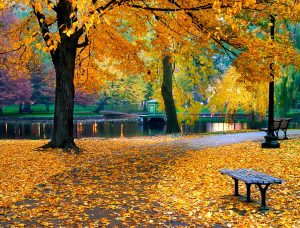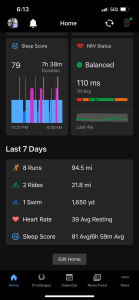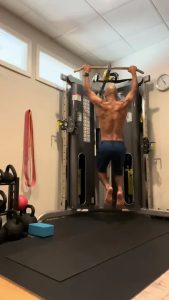 One aspect of Chinese medicine is the deep belief in the correspondence of the human body and its environment. When we lose our connection with the day and night cycle the effects are fairly obvious, but when we lose our relationship with the seasonal cycle, the effects are somewhat more subtle. Today we live in a fairly homogenous environment, heated and cooled, and generally overlit. We also tend to live with a social expectation of always being “on” or available to our work, or social commitments.
One aspect of Chinese medicine is the deep belief in the correspondence of the human body and its environment. When we lose our connection with the day and night cycle the effects are fairly obvious, but when we lose our relationship with the seasonal cycle, the effects are somewhat more subtle. Today we live in a fairly homogenous environment, heated and cooled, and generally overlit. We also tend to live with a social expectation of always being “on” or available to our work, or social commitments.
In the principle text of Chinese medicine the Huang Di Nei Jing, it describes behaviors and moods appropriate to the various seasons. One should be relaxed and free in the spring, loving and kind in the summer, serious and practical in the fall, and secretive and reserved in the winter. These four moods correspond with the directions of movement associated with the seasons, spring expanding upwards, summer radiating outwards, autumn gathering inwards, and winter consolidating and contracting. It also recommends patterns of sleeping which reflect these variations, sleeping more in the winter, and less in the summer months.
So called “seasonal affective disorder” seems to me to be a manifestation of this sort of problem. When we don’t take time in our lives for reflection and reconnecting to the self, it becomes difficult to keep extending ourselves to others. Self care should include the acknowledgement that there are times to rest and disengage. As a society we tend to be encouraging of extroversion, but we all need some introversion in our lives to balance these things out, and the winter season, with its limitations on travel and socialization is a good time for this.
What I have taken away from this in practice is advocating for people to honor feelings of fatigue and depression in the darker times of the year. While depression and withdrawal from social activity are problematic, moderating the amount of this sort of activity can help to balance things out, moderating depression and sadness which arise from overdoing it. A similar idea can be applied to athletic training, where constant year round grinding it out can prematurely age the body, doing some seasonal cycling can help to maintain a longer life in sports. I generally advocate for people moderating their work and social schedule, and spending time in natural settings, experiencing the weather of the season on a daily basis. Timing of sleeping and waking can also benefit from following the solar movements more closely, and light exposure more generally, winding down at the end of the day in terms of screen exposure and bright lights.
The paradigm of Chinese medicine is based on these cycles, and the inward movement of the winter phase is intrinsic in the ability to gather our strength for spring and summer. When we find effective ways of doing this consolidation, we have a solid foundation for the rest of the year.
To learn more about treatments with Pär, or massage therapy at Om Namo Center, click here.
Pär Scott is a skilled massage therapist, acupuncturist, and Chinese herbalist at Om Namo Center.



